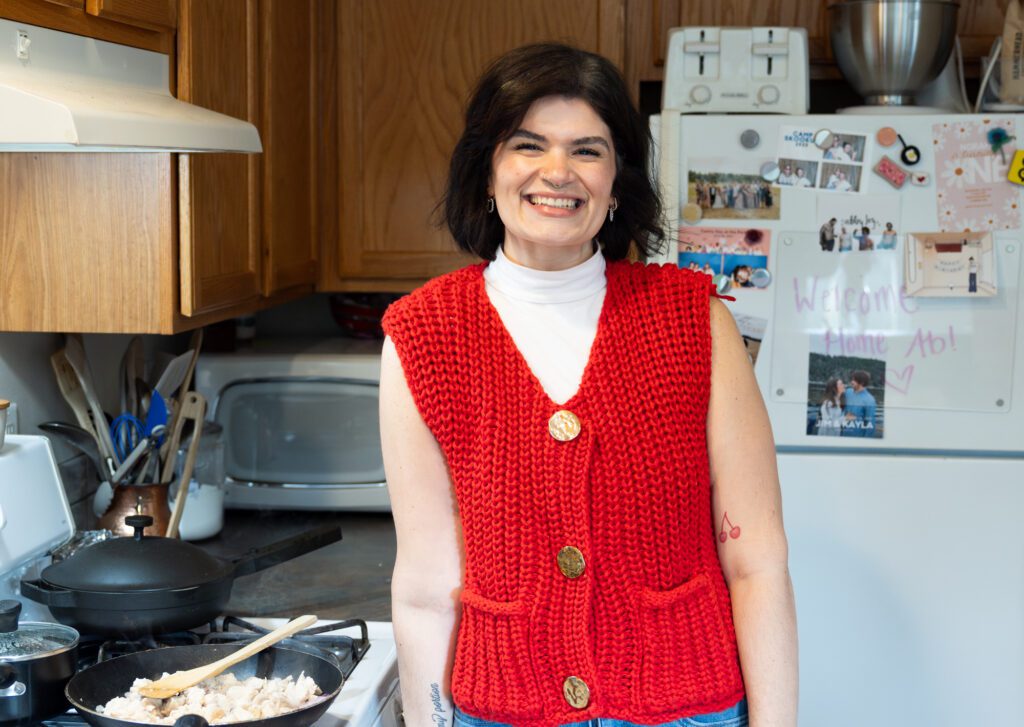What drove you to start filming ‘What I Eat in a Day’ content?
As a Type 2 diabetic, I have seen a lot of different answers and solutions to people online for how they’re helping their bodies acclimate to this glucose insensitivity, and oftentimes what I’m finding is either super restrictive dieting, and I struggle with disordered eating, and so that was not something that was resonating with me.
I thought, I know I can’t be the only person out there struggling in this way. … So I started sharing [in 2023] because it felt realistic and it felt hopeful.
What are your ethics when it comes to creating food-based content?
What works for me is not what’s going to be working for you. Everybody’s bodies have different needs. We could both have Type 2 diabetes or PCOS [polycystic ovary syndrome], but that doesn’t mean our solution is going to be the same one, and so take everything with a giant grain of salt … And if you are someone who’s posting, you have a responsibility to make sure that you’re not promoting disordered eating or something like that.
Why do you think your content resonates with people?
I think because I’m 34 and having mac and cheese probably. But I think also people enjoy seeing people who look like them and who are like them. When I was first diagnosed with Type 2 diabetes, it was really hard to find people who were talking about being diabetic, because there’s so much shame, there’s such a stigma around it. So I think we gravitated toward each other. I can’t even tell you how many people have messaged me being like, ‘No one knows I have Type 2 diabetes, but I’m telling you because you’ve inspired me.’
If you could condense what you’ve learned about nutrition into just a few nuggets of wisdom, what would they be?
There’s another creator Liza [@lizalosingweight], she said the phrase, ‘Eat what you want, add what you need.’ And that has changed my life. … Food pairing is something I’m very passionate about, because you can have a bagel and also have something full of fiber next to it, have some fruits and veggies. Nothing is off limits, but learn how food works.
What is one food staple you have on repeat?
A breakfast meal that I have is a cinnamon raisin bagel toasted with very melty cheddar cheese, and then you do a medium-hard fried egg on top. And I promise, it’s so good.
With your ethics and focus on sustainability, how do you filter partnership requests?
Basically, if I’m promoting it, I’ve used it. I like it. I love it. And I’m like, ‘OK, great, I’m talking about this anyway.’
What are your thoughts on society’s tendency to intersect body image and aesthetics with diet and food?
How much time do you have? It bothers me a great deal. I have lost over 100 pounds. This is the first time in my life that I have lived in what is considered to be my smallest body, but it’s still considered to be a bigger body. … We need to learn to separate that someone’s body size is not an indicator of their health.
There are different health issues that can come along with being overweight, with being obese, and I used to work in health care, so I understand that. And also, because I used to work in health care, I understand that they’re not always married to each other. Not everyone’s goal is to lose weight. In society, and as health care providers, we need to be asking, ‘What are your goals?’ I think society leans toward automatically being hateful toward people who are living in bigger bodies. The thinner-bodied person who is eating five different McDoubles is praised, versus this other person, having just one sandwich, but because they’re in a bigger body, they’re discriminated against.

